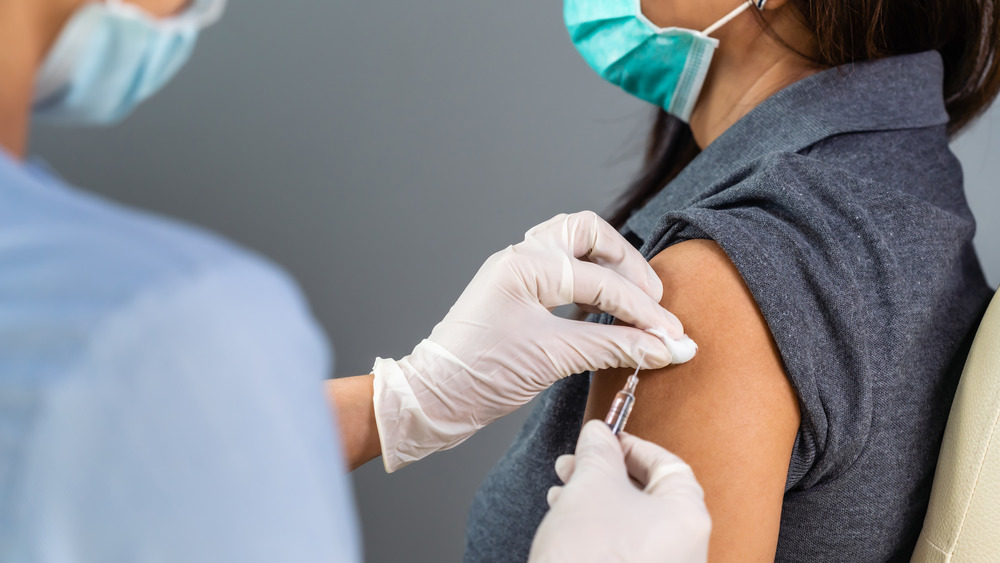Does The Measles Vaccine Help Protect Against COVID-19?
While the COVID-19 pandemic may be the first major infectious disease outbreak of many peoples' lifetime, it is certainly not a first in modern times. It follows a long list of outbreaks, epidemics, and pandemics. The last major global pandemic was the 1918 Spanish flu pandemic, but the United States has been riddled with smaller outbreaks and epidemics since then, including polio, measles, H1N1 influenza, Ebola, and so on.
The rising death toll due to COVID-19 infection around the world has sparked a race among scientists and experts to develop effective vaccines and treatments to help combat the pandemic quickly and effectively. In addition to repurposing medications already in use as potential treatment options, recently it has been theorized that the measles-mumps-rubella (MMR) vaccine may offer some protection against COVID-19 infection (via American Society for Microbiology).
The American Academy of Pediatrics and the Children's Hospital Association reported that children in the United States represent 10 percent of all COVID-19 cases (via Mayo Clinic). Data has suggested that children under the age of 10 to 14 are less likely to become infected when compared to those 20 years or older, even though they are the most susceptible to infectious diseases (via Human Vaccines & Immunotherapeutics). Hospitalization rates are also lower in children when compared to adults. While it is not exactly known why this is the case, immunization status may provide one avenue of explanation.
Promising MMR vaccine data
A recent study found that among 50 COVID-19 positive patients under the age of 42 years who had received the MMR II vaccines as children, those who had higher titer levels, or higher immunity, had less severe COVID-19 symptoms. They also found that the individuals with the highest mumps antibody titers seemed to be asymptomatic. While this one research article is by no means conclusive on its own, and more robust clinical studies and trials need to be performed to definitively speak on the matter, it definitely brings to light a valid area for further investigation.
Currently, the Centers for Disease Control recommends people get vaccinated for MMR, particularly children. The Advisory Committee on Immunization Practices recommends that all states require children entering childcare, and students starting school, college, and other post-secondary educational institutions to be up to date on MMR vaccination. Children are recommended to receive two doses; the first between the ages of 12 to 15 months and the second at 4 to 6 years of age. Older children and adults may need to be re-vaccinated if their immunity has weakened over time, which can be determined by checking their titer levels.
The COVID-19 pandemic has demonstrated the strengths and intricate knowledge of our scientific and medical communities. They have repurposed medications, worked on promising vaccines at hyper speed, and hypothesized additional preventative and therapeutic measures through a variety of different means. While you shouldn't run out just yet and get your MMR vaccine or boosters, you should keep up-to-date for further promising studies and trials. In the meantime, as always, remember to wear a mask in public, maintain social distance whenever possible, and wash your hands regularly.

